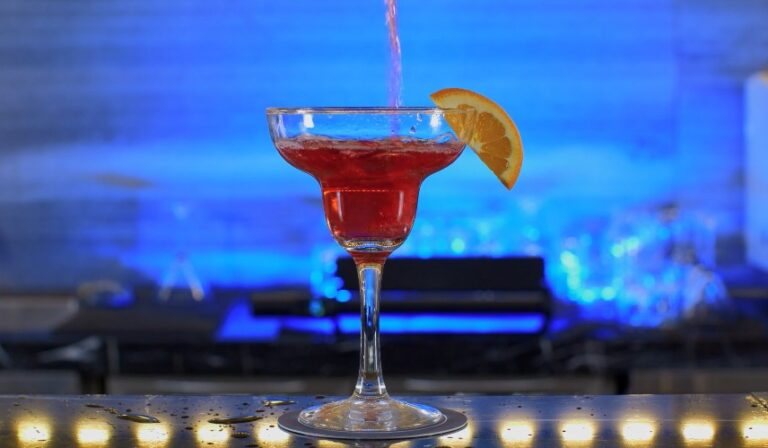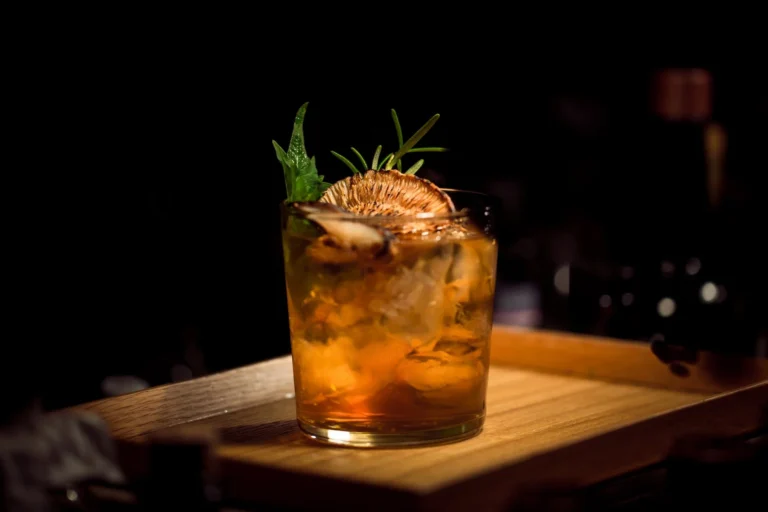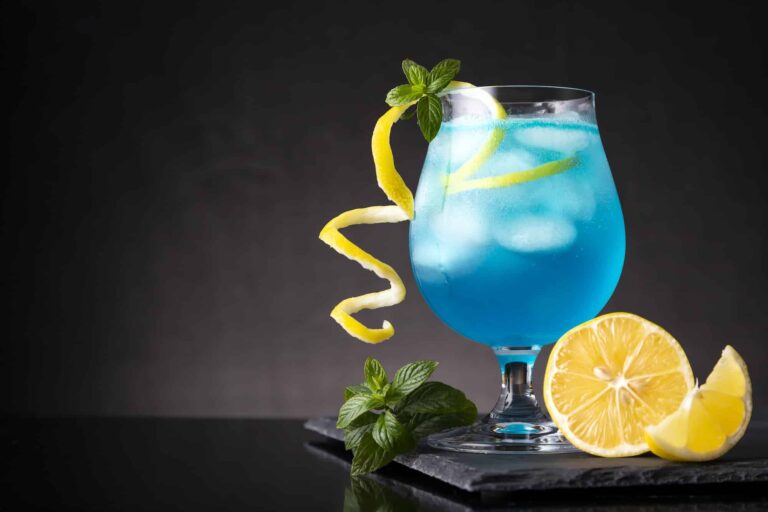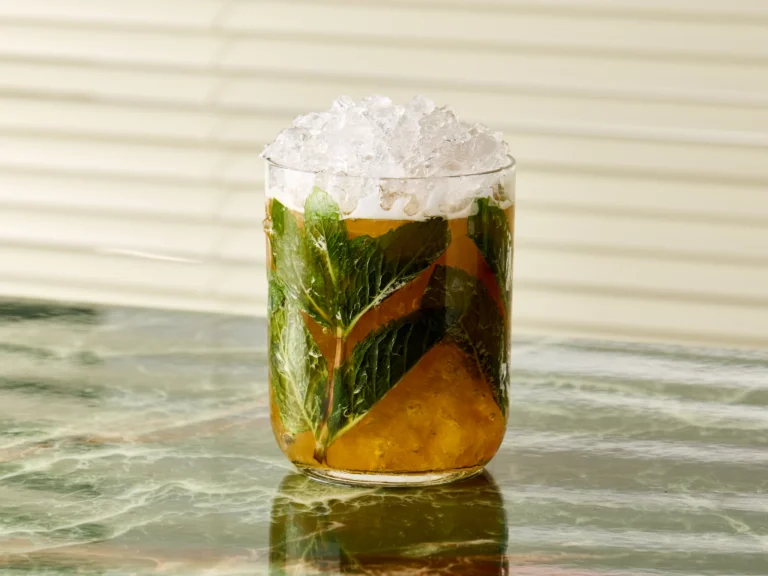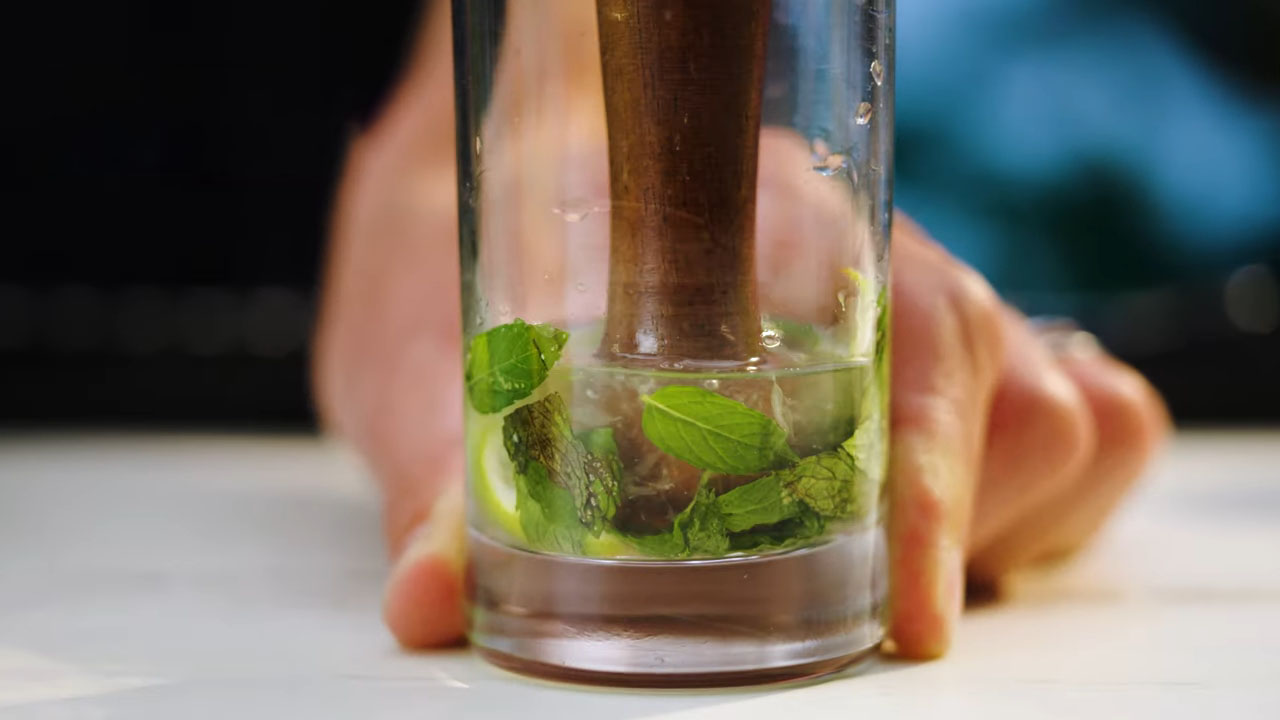A muddler is an indispensable bar tool, often compared to a pestle in cooking. It is used to crush and mix ingredients like fruits, herbs, and spices.
By doing so, it unlocks the essential oils and juices that elevate the flavor profiles of cocktails.
The tool’s purpose is simple yet vital, it ensures that every ingredient contributes fully to the drink, resulting in a more aromatic and flavorful cocktail experience.
Table of Contents
ToggleTypes of Muddlers
Choosing the right muddler can make a significant difference in cocktail preparation. Muddlers are essential tools that vary not only in material but also in design, each offering distinct benefits and drawbacks.
The type of muddler you choose will influence how effectively you can release the flavors of herbs, fruits, and other ingredients.
We explore the most common types of muddlers based on materials and head designs, along with their specific uses and maintenance needs.
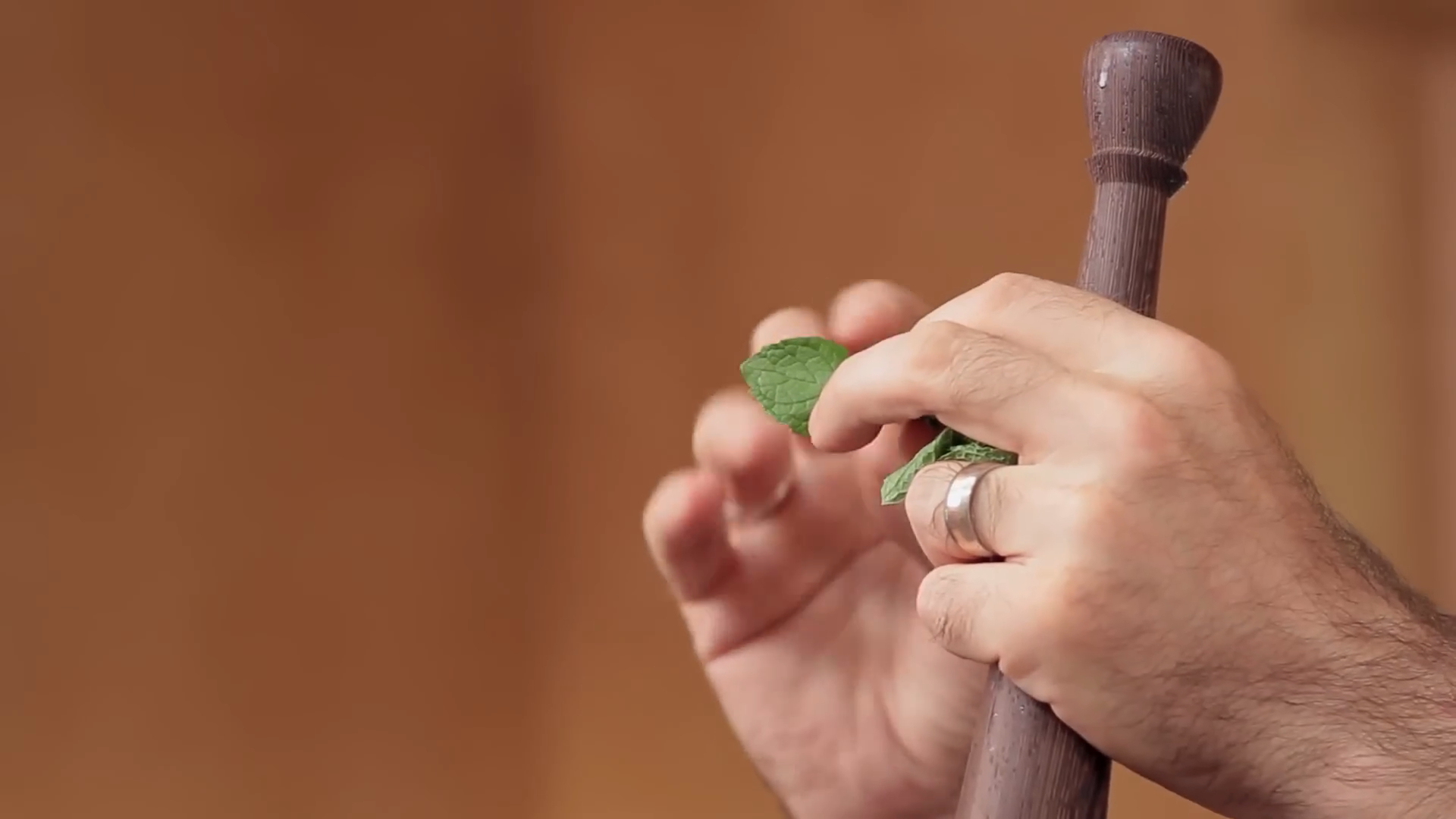
Materials
The material of a muddler plays a crucial role in its performance, ease of maintenance, and durability. Each type has its own characteristics that cater to different needs.
| Type | Appearance | Comfort | Maintenance |
|---|---|---|---|
| Wooden Muddlers | Traditional and elegant, favored by purists. | Natural grip, comfortable in hand. | Requires thorough cleaning; porous material can absorb odors and flavors. |
| Stainless Steel Muddlers | Modern and sleek design. | Ergonomic handles for comfort. | Easy to clean, often dishwasher-safe, durable and long-lasting. |
| Plastic Muddlers | Lightweight and simple. | Hygienic, does not absorb odors or flavors. | Often dishwasher-safe, straightforward cleaning. |
Design Variations
The head design of a muddler directly impacts its effectiveness, depending on the type of ingredients you’re working with.
Choosing the right design can ensure optimal flavor extraction and consistency in cocktails.
Flat-Headed Muddlers
- Best for gently pressing delicate herbs like mint or basil.
- Ensures oils are released without tearing leaves, which can introduce bitter flavors.
- Offers control and precision, making it ideal for drinks like mojitos.
Serrated or Grooved-Headed Muddlers
Proper Muddling Techniques
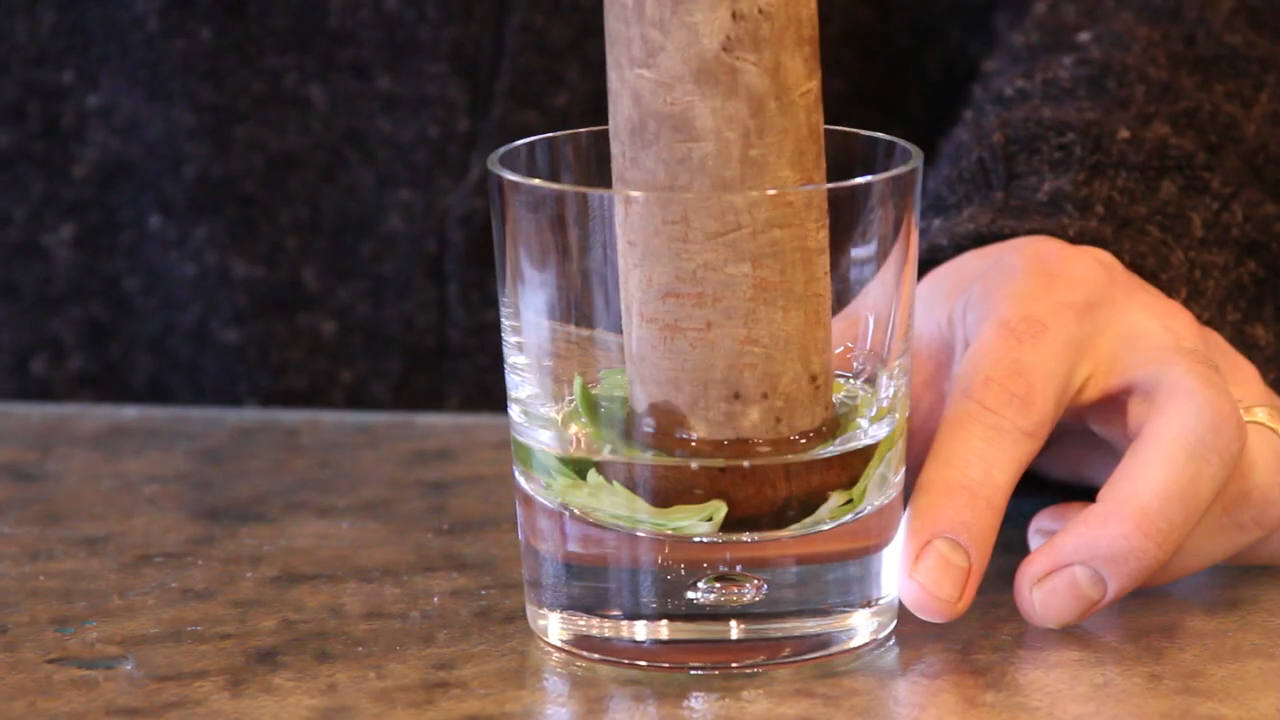
Mastering the art of muddling is a crucial skill for creating cocktails that are balanced and flavorful. While the process may seem simple, proper muddling requires precision, care, and the right tools.
By using the correct technique and avoiding common pitfalls, you can effectively extract the desired flavors and aromas from ingredients like herbs, fruits, and spices, elevating the quality of your drinks.
Steps to Muddle Correctly
Muddling is a straightforward process, but executing it properly ensures that your ingredients deliver maximum flavor without compromising the drink’s quality.
- Use a sturdy glass or shaker: Start by placing your ingredients, such as mint leaves, lime wedges, or berries, into a heavy-bottomed glass or cocktail shaker to prevent damage or breakage during the process.
- Grip the muddler correctly: Hold the muddler with an overhand grip, ensuring a firm yet controlled hold.
- Press and twist gently: Apply firm but gentle pressure while twisting slightly to release essential oils and juices. This technique is particularly effective for herbs and citrus fruits.
- Avoid excessive force: Too much pressure can crush ingredients like herbs, releasing bitter compounds that negatively affect the cocktail’s flavor.
- Focus on balance: Ensure that all ingredients are muddled evenly to achieve a consistent flavor profile in the drink.
Common Mistakes to Avoid
Several common errors can reduce the quality of your cocktail, making it essential to be mindful of the following:
- Over-muddling herbs: Crushing herbs like mint or basil too much can break the leaves and release bitter flavors, which can overpower the drink.
- Using inappropriate glassware: Delicate or thin glassware is prone to cracking or breaking under pressure. Always opt for a sturdy glass or shaker designed for muddling.
- Applying too much force: Excessive pressure can damage ingredients and lead to an unbalanced flavor profile, particularly when dealing with soft fruits or delicate herbs.
- Failing to clean the muddler: Residue left on the muddler from previous use can introduce unwanted flavors into your drink, so always clean your tools thoroughly before starting.
Cocktails That Utilize Muddling
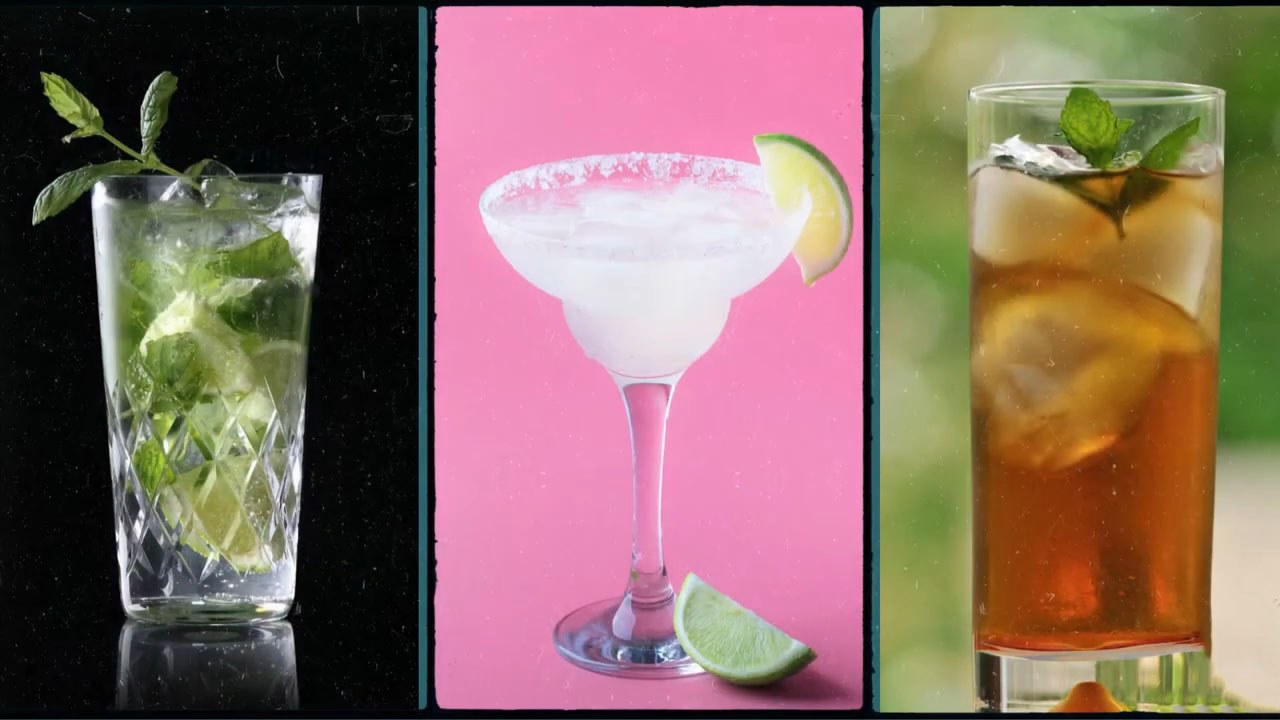
Muddling is a fundamental technique in mixology, bringing out the full potential of ingredients to create cocktails that are fresh, flavorful, and aromatic.
By crushing and combining fruits, herbs, and sugar, muddling allows the natural juices, oils, and aromas of the ingredients to blend harmoniously with the spirits and mixers.
This method is indispensable in crafting some of the most iconic and beloved cocktails, each with its unique flavor profile.
Mojito
The Mojito is a timeless favorite, known for its refreshing and invigorating taste. To prepare this cocktail, mint leaves, sugar, and lime wedges are muddled together to release their essential oils and juices.
The mint imparts a cooling aroma, while the lime adds a bright, tangy kick. This muddled mixture is then combined with white rum, ice, and soda water to create a drink that’s both vibrant and revitalizing. The Mojito’s success lies in the balance achieved through proper muddling, ensuring the mint’s freshness without over-extracting bitterness.
Caipirinha
The national cocktail of Brazil, the Caipirinha, relies heavily on muddling to achieve its signature flavor. Lime wedges and sugar are muddled together to release the lime’s juices and aromatic oils.
This process forms the foundation for the cocktail, which is then mixed with cachaça, a Brazilian sugarcane spirit. The result is a sweet and tangy drink with a robust citrus profile. The muddling process is key to the Caipirinha’s character, ensuring the flavors of the lime are fully integrated.
Old Fashioned
The Old Fashioned is a classic cocktail that embodies simplicity and sophistication. Muddling is used to combine sugar, bitters, and a citrus peel, creating a flavorful base that defines the drink.
A muddled mixture is then mixed with whiskey, usually bourbon or rye, and garnished with a citrus twist or cherry. The muddling process ensures that the bitters and sugar are well-dissolved, providing a balanced sweetness and depth of flavor.
Whiskey Smash
Bright, zesty, and herbaceous, the Whiskey Smash is another cocktail that showcases the importance of muddling. Mint leaves and lemon wedges are muddled with sugar to extract their flavors, resulting in a fresh and vibrant base.
Whiskey is then added, creating a drink that is both refreshing and robust. Proper muddling is crucial in this cocktail to release the mint’s aroma without over-extracting its oils, which could lead to bitterness.
Maintenance and Care of Muddlers
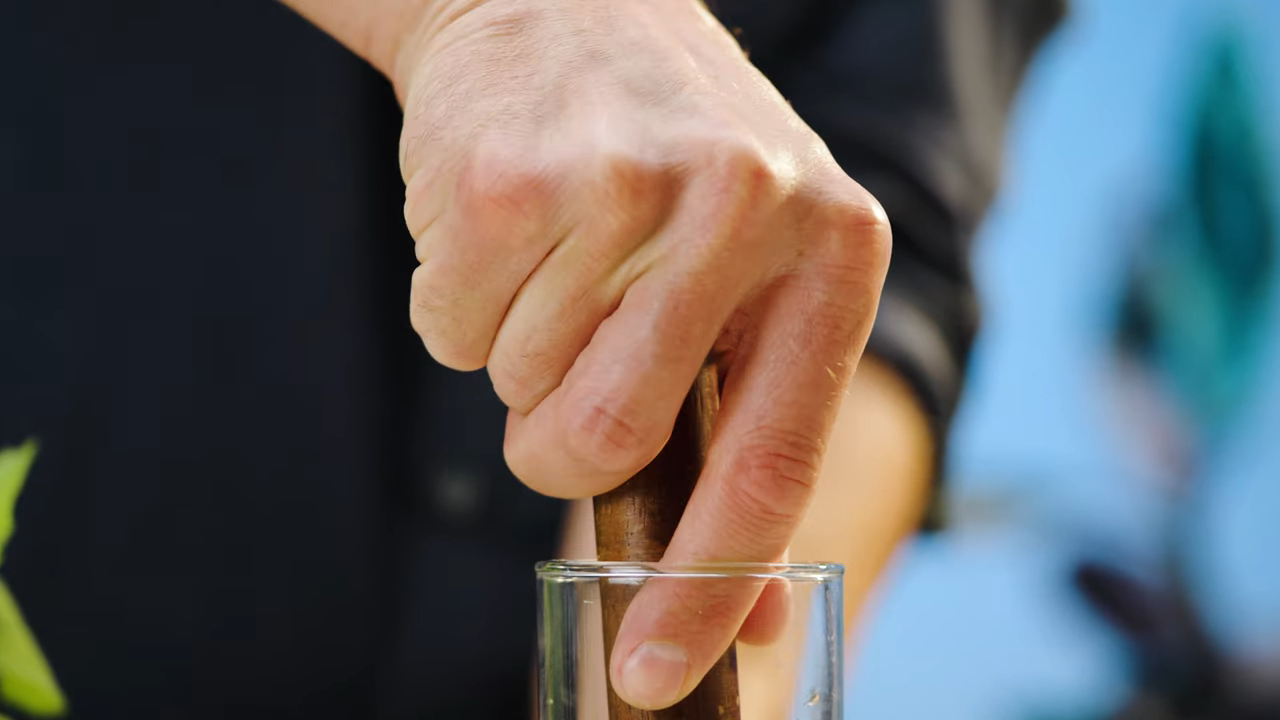
Maintaining a muddler is essential to ensure its longevity and optimal performance. Proper cleaning and storage practices not only help preserve the tool’s condition but also ensure that the flavors in your cocktails remain untainted.
Neglecting maintenance can lead to issues like bacteria buildup, damage to the material, and a decrease in effectiveness. Below are detailed steps and tips for cleaning and storing different types of muddlers.
Cleaning
Proper cleaning is a vital step in maintaining a muddler’s performance and hygiene. Different materials require specific care routines:
| Type of Muddler | Washing | Drying | Additional Notes |
|---|---|---|---|
| Wooden Muddlers | Wash immediately after use with warm, soapy water by hand to avoid warping or cracking. | Dry promptly with a clean towel to prevent mold or bacteria growth. | Avoid soaking in water or placing in the dishwasher, as this can damage the wood. |
| Stainless Steel Muddlers | Rinse off residue immediately after use; can be hand washed with mild soap and warm water. | Dry with a soft cloth to maintain their shine. | Most models are dishwasher-safe, but check manufacturer instructions to confirm. |
| Plastic Muddlers | Easy to clean; rinse and place in the dishwasher if allowed, or wash by hand with warm, soapy water. | Dry thoroughly to avoid water spots. | Do not use abrasive sponges, as they can scratch the surface. |
Storage
Storing your muddler correctly is just as important as cleaning to keep it in top condition. Here are some guidelines based on the material:
| Type of Muddler | Storage Location | Humidity Considerations | Protection Tips |
|---|---|---|---|
| Wooden Muddlers | Cool, dry place to prevent moisture damage or warping. | Keep away from high humidity areas like near sinks or dishwashers. | Use a protective case or wrap in a clean cloth to avoid scratches. |
| Stainless Steel and Plastic Muddlers | Dedicated compartment or drawer to avoid nicks and scratches. | Ensure the muddler is fully dry before storing to prevent water spots or bacterial growth. | Separate muddlers from other utensils to prevent damage. |
The Bottom Line
Muddlers play an integral role in crafting flavorful cocktails. By mastering proper techniques and selecting the right tool for your needs, you can elevate your mixology skills. A well-maintained muddler ensures optimal results, allowing you to consistently create drinks that delight the palate and showcase the vibrant flavors of the ingredients.




